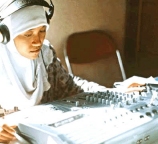|
Summary of conference conclusions"Converging Responsibility: Broadcasting and the Internet in Developing Countries" was a conference held in Kuala Lumpur, Malaysia from September 4-6, 1999. It was attended by people from 35 institutions in 19 countries. The meeting was hosted by the Friedrich Ebert Stiftung and supported by UNESCO and IDRC. The report of the meeting was delivered to the full annual meeting of the International Institute of Communications, also in Kuala Lumpur, on September 8. In their report, conference participants expressed concern about the disparities between levels of access in various parts of the world and stressed the importance of addressing the issue with innovative responses. "As we enter the era of the knowledge society and the knowledge economy, access to the infrastructure to share knowledge is essential for social and economic progress..." "The seriousness of the challenge requires creative responses from government agencies responsible for communication policy and regulation, from the telecommunication industry and from international governance bodies." The report also emphasised the importance of transparency and public involvement in communications policy and regulatory processes. Noting the efforts by various bodies to educate and support new telecommunication and broadcast regulators, the report underlines the "need to expand these efforts to include the education of citizens and NGOs to ensure they are aware of their rights and responsibilities in the new regulatory environments." Transparency and participation are also important on the international level. Global governance bodies are playing an increasingly important role in setting communication standards, allocating radio spectrum, and defining broad policies that are shaping how people communicate. Thus, the report says, "global governance bodies such as the ITU, WTO, WIPO and the World Bank must also be transparent, accountable and allow broader participation from civil society." The report also identifies some creative proposals for extending the reach of the knowledge infrastructure by making use of existing radio broadcast networks. "While in some parts of the world a radio is most often seen as an accessory for an automobile, in large parts of the South, it is the only communication device that most people have access to." In Sri Lanka, for example, only one person in 500 has access to the Internet, but virtually everyone listens to the radio. All of South Asia, with 23% of the world's population, has only 1% of the world's Internet users. Conference participants examined a number of pilot projects combining the radio and the Internet to mutually enhance their development impact. Some of these, such as Latin America's Agencia Informativa Pulsar and Indonesia's Kantor Berita Radio 68H, use the Internet to link radio stations. Others, such as Kotmale Community Radio in Sri Lanka, are experimenting with using radio as a "gateway" to the Internet. These projects seek to make the Internet's information resources available to rural and under-served communities. Information about the conference, including the text of the report and of the keynote address by Dr. Rohan Samarajiva, is available at http://www.comunica.org/kl/ For further information, contact the conference's co-chairs: Bruce Girard <[email protected]> Sucharita Eashwar <[email protected]>
|



